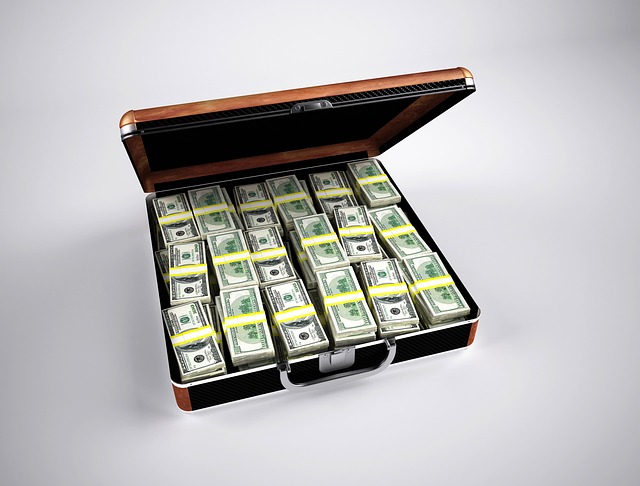So you want to know how to become a better guitarist?
I didn’t want to write a top 5 or 10 list but instead, I’ve written down everything that I have thought about when planning my playing and some detailed tips to help you on your quest on how to become a better guitarist. I hope you find these tips and tricks useful and feel free to share this post; I’d really appreciate if you could. Make sure you sign up to receive the www.FretSucccess.com newsletter if you haven’t already.
So here we go…
So what do you want from this?
Well first you need to ask yourself “what do I want to get from playing guitar”? This is a difficult question to answer, especially if you’re just starting. So let’s break it down into a few small questions:
- Do you want to be a famous player and household name?
- Do you want to be in a popular band?
- Are you leaning towards being a successful session player?
- Do you want to be a guitar teacher?
- Are you looking to make it in your local scene and be content with making a comfortable living from playing guitar?
- Do you want to write music for yourself or others and be renowned for doing so; or
- Do you just want to play as a hobby and nothing more?
It’s hard to decide where you will take your playing. But, it’s very important to pick a general route you want to go down, so you can figure out how to become a better guitarist. You don’t have to go down just one route; you can keep your options open.
A great advantage of the guitar is that if you progress down one path you can use this knowledge in many other areas if you choose to change what your goals are. You won’t be wasting your time, in fact, I’ve found that the least likely of avenues helped me progress both technically as a player and as an artist. Don’t be scared of the unknown.
What are the best things to consider doing to develop yourself?
There are some simple and general tips that can help you progress down your chosen path and on your quest on how to become a better guitarist, no matter what route you want to go down. These are:
- So you want to be famous? Becoming a household name such as Slash or Brian May doesn’t happen to too many of us guitarists. It’s very difficult to do but it’s not impossible. It sometimes takes a lucky break and most of the time it’s down to a great deal of hard work and actually more often, a bit of both. Here are a few things that can help:
- Play with as many other musicians as you can. You should make it a target to play with as many different musicians as you can. You never know who may prove to be a useful contact in the near or distant future. Aiming to get paid for all your work, as a performing musician, is what you want in the long run but there can be a huge benefit in working with other musician and even doing gigs for free. You just need to determine if it looks like it’s going to be worthwhile; although you will never truly know until you dive in. I embraced this mentality for a while and developed a good sense of what opportunities are worth your time and which aren’t;

- Regularly write your own music. If you haven’t started writing your own music then you really should. It’s an important way to progress you playing and your career and it will help you with your quest with how to become a better guitarist. If you’ve tried song writing but you haven’t written anything you like yet then you should keep going and write as much as you can. It’s so crucial to have an easy way to record ideas on the fly, you can use a smart phone or buy a purpose built recorder you can have handy to hit record, such as the Tascam DR-05; this is such a great tool that you need on your quest for how to become a better guitarist;
- Regularly go through your musical ideas and be critical. It’s one thing to record your ideas but it’s another to organise these, listen back to and do something with them. I’ve lost count of the ideas that I had in the early stages in my guitar playing. Whether, it was during down time at a rehearsal or just when you pick up your guitar with a burst of inspiration, it’s so easy to record them and just forget they ever existed. This is why it’s important to take time to listen back to your ideas and be critical. Being critical of your playing is one of the best ways I found on how to become a better guitarist. When you review your recordings, it’s best to work up a schedule so you might take a couple of hours every month to listen to all your ideas from that month. Once you get a few you should then start to collate similar ideas into folders on your computer such as blues, acoustic or even similar ideas that could become a single song. Just remember to be ruthless. Get rid of rubbish and only keep the really good stuff;
- Develop and finish your musical ideas. Once you’ve been through and picked your best ideas you then need to do something with them. I’ve tried many methods to try and force myself to develop ideas but the most effective way is to start making recording sessions in your Digital Audio Workstation (DAW) such as Pro Tools or Reaper with each idea. Once you reach a level of say 10 sessions, you should then focus on developing those ideas until they’re finished. You may come up with new ideas but you should really focus on completing compositions first. If you focus on completing your ideas into full arrangements and are strict with yourself then you’ll start to come up with ideas to complete your arrangements and there won’t be any stopping you. I’ve actually found it most effective when I’ve given myself deadlines to work to give a sense of urgency. I’ve also starting submitting my music for use on music catalogue sites such as Songtradr once they’re finished; which is a great way to make some money and get your music to end users;
- Know your style. It’s important to find your artistic style. It’s easy to copy other successful artists but this really won’t help you progress and become the elite guitar player and artist you want to be. It’s completely different to take inspiration from someone and you definitely should do this but you need to find your own sound and style. Finding a unique artistic style is becoming harder and harder as time goes by but as long as you stay true to what you want to do and write music you love to play and hear, then you won’t go far wrong. The internet is making music much more widely available and so you can always find other likeminded people who are into you’re style of music. This is where you also need to make a decision, which leads me onto my next point;
- You don’t have to write music for the masses to make a living as an artist. You may want to be a household name, which is something we’ve all dreamed about at some point. But, you don’t need to do this to make a living from being an independent artist. Don’t get me wrong, it isn’t easy to do either but it can actually be more rewarding to have relatively small fan base that wait to hear and buy your every song. It’s much easier to start off small and simple and then progress this once you’ve become established, so consider this when wanting to progress your career as an artist and when thinking about how to become a better guitarist;

- So you want to be in a popular band. Bands eh? Breakups, Disputes, Artistic Differences, Tours, Recording, Albums; it’s all part of the package deal. It’s not for everyone but being in a band can be a great way to become a better guitarist and artist. Trying to be in a popular band is hard work and there’s no blueprint to follow to bring you success. The old fashioned model of having a life-long goal to get that record deal just isn’t as relevant as it used to be. Recording, managing and releasing your own material is now much easier and more affordable than ever. Even if you can’t record yourself it’s still very affordable to go to a recording studio and then do all the other leg work as a band such a promotion, writing marketing etc. Being in a band can be good and bad. The pros are that you can share the cost burden and also bounce musical ideas off each other and bring a combined musical personality to your sound. However, sometimes bands stop because of musical difficulties that never go away and/or members just change their perspective and move on. So it really depends on what will work best for you;
- What does it take to be a successful session player? If you can’t read music then you will find it much harder to be hired as a session player. Don’t get me wrong there are exceptions to this but for many gigs, you’ll need to read. Session playing can be very hard work to make a living from, as you will need to get regular gigs or have a good agent to keep you in work. It’s not impossible but it’s not for everyone. It takes a lot of dedication to both developing your playing and reading skills but also marketing yourself. It’s definitely a lifestyle industry as you’ll likely be moving around a lot and might not get work for a few weeks, so balancing with a family would be difficult. If you can’t read music then get yourself a tutor who can help you with this, you’ll progress much faster with a tutor;
- Is teaching your bag? So you’ve mastered everything technical you want to accomplish and a performing career isn’t for you? Well how about becoming a teacher? Teaching can be very rewarding, especially once you’re students start to succeed with their own goals. It can be hard to know where to start with teaching but you can start getting 1 or 2 students to start with and see if you like it. Teaching can be hard work and you often need to work evenings unless you can get placed at a school to teach during the daytime. More and more people are learning the guitar every day and so you should really consider this as the next step in your career. Fret Success are always looking for new teachers to be associated with us so feel free to drop your resume to us via email (learn@fretsuccess.com);
- Are you looking to make it in your local scene and making a living from playing covers? This builds on joining a band to make music but there are two main types of band, Cover/Function and Originals. As I said above, it’s can be hard to make a living from just playing original music but far easier to make a living from being a cover/function band. Being in a cover band might not push your creative side too hard but it can be lucrative, especially if you get to play weddings and corporate events. I tried to mix my original band and function bands, in my early years, in terms of playing our own songs with covers in the same performance. The thing is that these crowds are very different so I’ve found it best to keep them separate. Plus with this way you can design the marketing campaigns in the different ways they need to be, without compromising on each; and

- Do you just want to play as a hobby and nothing more? There’s one final point to make and that’s success comes in many forms. So you don’t necessarily have to be famous or making loads of money to be successful. It’s perfectly fine to keep guitar as your hobby. If you try and turn something you love into a career then this can be great. But you may end up in a position where you don’t enjoy it as much and see it as a job. So make sure you’re confident that you want to make playing guitar your career as you might find it difficult to go back.
What are the other things you need to develop to get ahead?
So you’ve set out your playing goals and plans, now I’ll give some tips on how to become a better guitarist? Here are a few pointers based on my experience of learning guitar throughout the years.
- Play and practice regularly with a clear progression in mind. Have either a tutor or a mentor, depending on your ability. You’re never too advanced to have someone who guides you on how to progress and helps you know how to become a better guitarist. I cover this in detail in my book “The Secret to Success – Guitar Practice Routine”, which is full of tips and tricks on how to practice effectively and how to become a better guitarist. If you’re comfortable with your ability then it might be that you want to work on your song writing skills and develop your artistic side of music and identity. It’s so important to get help with any aspect of your progression and ability, so don’t neglect it and the quest for how to become a better guitarist will be much easier. If you’d like to get a tutor or your tutor isn’t getting you to where you thought you’d be then check out FretSuccess correspondence lessons or apply for private lessons;
- Master your timing and rhythm. Everyone can learn scales and chords but if you really want to know how to become a better guitarist then you need to master your guitar rhythm. Rhythm is the core foundation of music (along with melody and harmony) but poor rhythm is really noticeable. There are many ways to improve your rhythm including:
- Practice with a metronome. It’s tempting to just pick up and play freestyle guitar all the time but you will develop your rhythm skills much faster if you use a metronome. You can mix it up by going freestyle occasionally but using a metronome is crucial to your development and will help with your quest on how to become a better guitarist. I initially used a metronome to find out what speed I could play certain scales. I found one of the best ways to develop rhythm was to play along with the metronome not with just scales but also songs which helped me learn when to hit notes. Using a metronome also meant I could switch up the tempo to test myself and build speed. Keeping a track of what speed you can play helps you know at what level you’re playing and so you can work on weaker elements of your playing. Here’s a good value metronome from amazon that I use: Korg MA-1BKRD Multi-Function Digital Metronome;
- Use backing tracks. Using the metronome is one thing and a great way to develop your rhythm but they aren’t the most musical inspiring devices. You can help develop your rhythm even further by using real band backing tracks so that you get more used to developing your rhythm as part of a performance. This will help to develop your knowledge of how to play to compliment rhythms and progress your improvisation. I’ve used the Big Book of Backing Tracks from Amazon a lot, you’ll not regret buying it; and
- Play with a band. It’s one thing to practice at home with a metronome and backing tracks but there’s something else that you should try and do, find a band. There are loads of bands out there and musicians, who want to start them, so put yourself out there and have a go. You shouldn’t only just play in a band but rather get this to compliment using a metronome and backing tracks. Actually one of the most effective ways I’ve found to develop my live performance is to get the whole band to play to a metronome. This has helped every band I’ve ever played in. It’s a bit strange and first and your drummer will hate you but it’ll be worth the pain;
- Learn how to setup your guitar. It still surprises me how few guitarists actually know how to change a string properly. I went all the way and built my own guitar, which taught me so much about how to setup a guitar; which comes in handy all the time. I don’t advise you take a guitar build unless you have lots of patience and a partner that does too. But you should take the time to learn how to set up your guitar, whether it’s electric, acoustic or bass; they all have similar setups but some differences. Being able to setup your guitar will help it play and sound better and so make you a better player when you use it. You should also learn about how different customisations affect your guitar’s playability and tone. If you change strings, the sound and playability changes, if you change your pickups then it changes again, if you change your guitar nut for something more solid then this will give you a better sound and less tuning issues. You’ll not regret spending the time learning how to setup your guitar and you may even get asked by people to set there’s up if not then offer and you’ll learn even more!;
- Change where you practice. It’s very easy at home to play just sitting down as it’s more comfortable. I hit a point where I was playing fine at home and then when I performed I noticed that my performance wasn’t as good as what I could play at home. I became very frustrated and couldn’t figure why I struggled to play live. Then I realised that it was because I sat down to practice at home but stood up to play live, which meant that my hands and wrists were in completely different locations between home and gigs. So rather than sit down for live performance, I started to practice standing up at home. I found that I quickly started to resolve the differences between home and live playing, make the switch now and see the difference it will have to your playing;
- Learn something alien to you every week. It’s easy to become complacent with your playing. In that, you just keep playing the same material that you already know. If you want one of the biggest tips on how to become a better guitarist, then don’t stay in the safe zone. You need to push yourself on a regular basis and try as many new things as you can. It may not be every week you do a new thing but it should be an aim and a mind-set you adopt. Research and plan a list of 20 new things you would like to learn and master then set a timeline to master these. You might not master them straight away but you’ll improve significantly. Think small steps and you won’t go far wrong;

- Watch your picking hand. This is something that I didn’t even consider when I wanted to know how to become a better guitarist. A simple move to watch your picking hand rather than your fretting hand will really help your playing. Just have a go and don’t look at your fretting hand, you’ll find that you play much better than you think and your fretting hand will do pretty well on its own. Be more aware of how your picking hand is working and how it interacts with the fretting hand. I found a huge increase in speed and rhythm when I started to watch my picking hand more closely, give it a try;
- Learn your scales. If you don’t know your scales then you really ought to. You will definitely hit a ceiling with your playing if you don’t know your scales. There are no shortcuts with this, you just need to take the time to learn them and test yourself. Don’t forget to use a metronome; and
- Practice your improvisation. Improvising is something that a lot of guitarists struggle with. There’s a difference between improvising and reciting licks and riffs that you’ve learnt or have played time and time again. A great way to boost your improvising is by playing with someone else and soloing over what they play, take turns and make sure you record it. Set up a Tascam DR-05 set it recording and forget about it. You don’t have to play solos you can also improvise new riffs or chord progressions. The main point is that you play with other and critique each other. If you can’t find anyone else to play with or would like to develop this more then you should get a looper pedal. The TC Electronic Ditto Looper pedal is great for this, If you haven’t got a looper pedal then you need to get one now (Go to Amazon here). Lay down a basic chord progression on your looper pedal then play around with ideas on top of it, be adventurous. Try and play something you’ve never played before, push yourself to be creative. A good way I found to help was to play arrangements that were completely different to the styles I normally play. For example, if you’re a rock player then improvise over a funk or jazz progression, have fun with it.
I’d really appreciate it if you can find time to leave a comment below and share this on your social media.
I hope you found this article useful.
Cheers,
Dan
(Founder)



